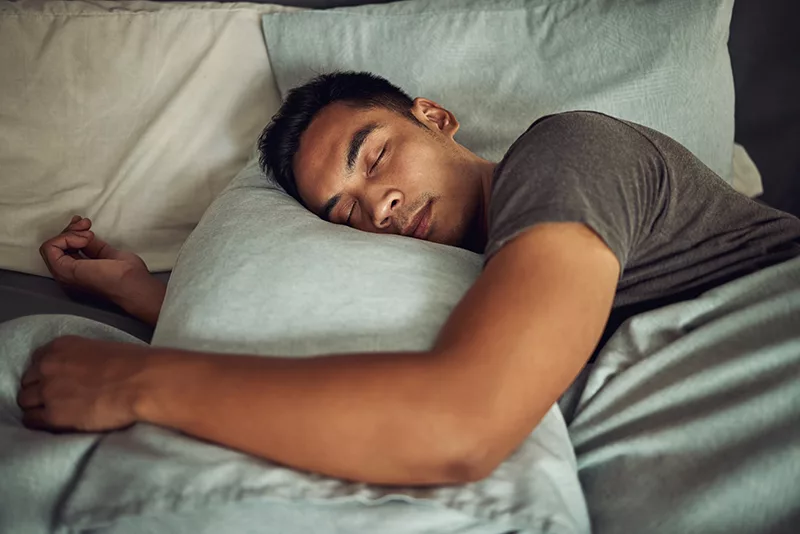
Your physical and mental wellbeing depend on you getting enough sleep. But the fact remains that many individuals don’t receive the quantity of sleep they need. 35% of individuals say they get fewer than seven hours of sleep every night on average. Lack of sleep has been linked to decreases in positivity, lucidity, and productivity.
How to Get a Better Night’s Rest
While being aware of warning signs for sleep apnea might help you get a better night’s rest, adopting certain easy behaviors can further improve your sleep quality.
- Establish a Consistent Routine: Your circadian rhythm is a 24-hour cycle that influences when you feel drowsy and how your body and mind function. Consistently going to bed and getting up at the same time each day can help you maintain a healthy circadian rhythm.
- Create a Relaxing Environment: Following the body’s natural routines might help you get the best sleep possible. Make sure your bedroom is dark, quiet, and cool so you can get some rest.Keep bright lighting during the evening to a minimum. Since blue light from phones and tablets has been proven to inhibit melatonin generation, it is recommended that electronic devices be turned off at least two to three hours before sleep.
- Mind Your Diet: Before bed, stay away from big meals, coffee, and lots of drinks. Too much drinking before bed can make you have to go to the bathroom a lot during the night.
Things you shouldn’t drink before bed:
Alcohol: To get the best sleep, don’t drink more than one alcoholic drink a few hours before bed.
Coffee: Stay away from coffee at least six hours before bed to keep your sleep from being interrupted.
Things you shouldn’t eat before bed:
Acidic foods and drinks (citrus fruits, fake sweeteners, fizzy drinks, and some grains and fish) make it take longer for the stomach to empty. This makes acid reflux worse, which is when stomach acid comes back up into the esophagus.
Consuming fatty or spicy meals: Studies have shown that consuming fatty foods exacerbates symptoms that mimic acid reflux. Additionally, spicy meals may cause bloating, acid reflux, and heartburn.
Recognizing Sleep Apnea
Sleep apnea is when you gasp for air for a moment when your breathing stops or slows down, which wakes you up. This sleep disorder is serious and can ruin the best preparations for a good night’s sleep. If you consistently snore and occasionally make gasping or choking noises, sleep apnea may be to blame for your headaches, focus, memory, or concentration issues, especially if they are unrelated to other medical conditions. You should visit a doctor right away to have sleep apnea checked out if you or someone you know exhibits these symptoms. Diagnosis and treatment can make sleep and health in general much better.


